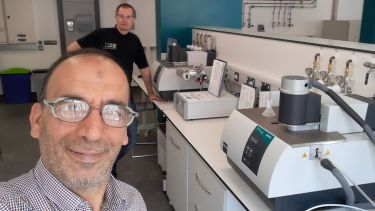Our strategy
Royce at the University of Sheffield identifies challenges and accelerates innovation in advanced metals processing to support the sustainable growth and development of UK metal industries.
Off
Our vision
Key objectives
- To deliver a step-change in the discovery and creation of innovative advanced material systems.
- To develop contemporary materials processing strategies to ensure component construction is precise and efficient.
- To reform alloy compositions with the ambition of improving performance, manufacturability, and reducing cost.
- To maximise design properties and minimise waste in production.
- To increase the recyclability of materials, and minimise the whole-life-cycle carbon footprint.
- To utilise agile and lean manufacturing through near net shape demonstrator components tailored to unique customer requirements.
Our mission
Royce at the University of Sheffield supports world-leading academics and engineers in materials research, accelerating metals discovery, processing, characterisation, upscaling, and manufacturing to deliver a digitally integrated, sustainable, and resource-efficient future for UK manufacturers:
- Enabling national materials research foresighting, collaboration, and strategy.
- Providing access to the latest facilities and capability.
- Catalysing industrial collaboration and exploitation of materials research.
- Fostering materials science skills development, innovation training, and outreach.

